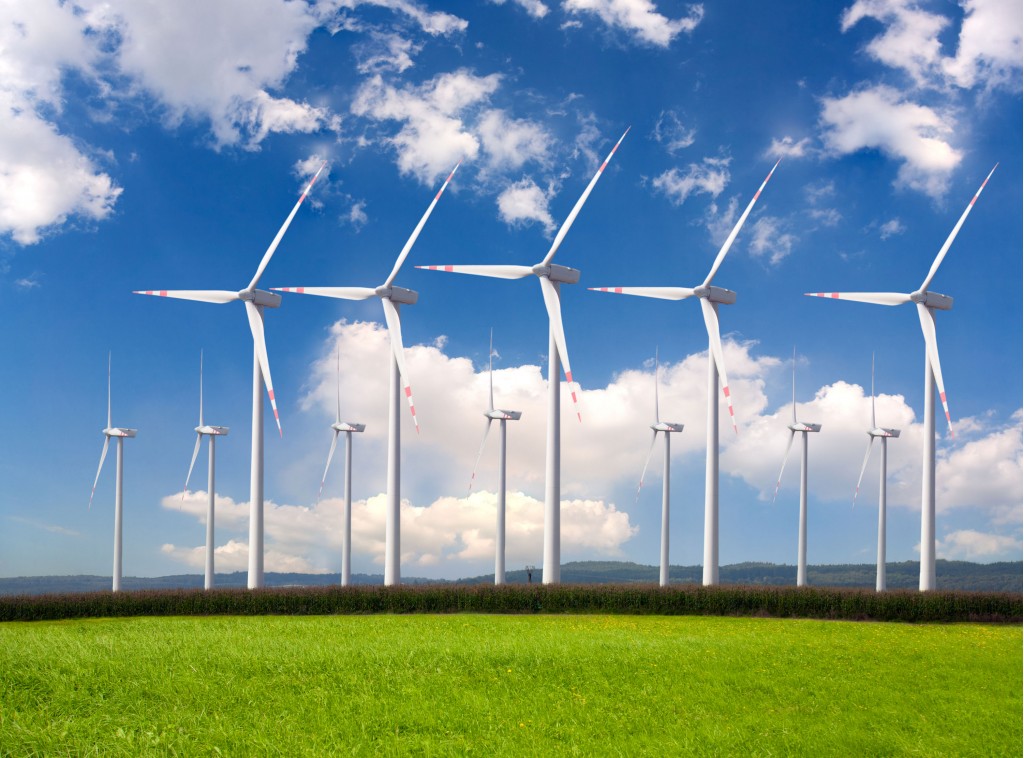While the politics of climate change remain contentious in the U.S.--if not in much of the rest of the developed world--that doesn't have to hold up the growth of renewable-energy infrastructure.
Because if there's one thing everyone can agree on, it's that saving money is great.
And that's why one city in the often conservative oil state of Texas is planning to convert to 100 percent renewable energy.
DON'T MISS: What Country Powered Itself Entirely On Renewable Energy For 75 Days?
About 25 miles north of Austin, Georgetown is making the switch to save cash, not the planet, explains The Guardian.
By January 2017, all electricity within Georgetown's service area will come from wind and solar power.

Wind farm, by Flickr user Patrick Finnegan (Used under CC License)
Last year, the city signed a 20-year agreement with EDF for wind power from a new plant in Amarillo.
It then finalized a deal with SunEdison, which will build plants in west Texas that will provide Georgetown with 150 megawatts of solar power.
The deal takes effect in either 2016 or 2017, and runs through 2041.
SEE ALSO: As Solar Power Spreads, Diverse Users Fight Utility Attempts To Penalize It
The move came about through the alignment of certain economic conditions.
In many Texas cities, the utility market is deregulated, meaning customers can choose from a wide array of providers and energy sources.
This not only makes it hard for individual providers of renewable energy to make an impact, but also discourages the construction of new infrastructure, as the market is highly volatile and thus often short-sighted.

wind farm
In Georgetown, however, the city utility company has a monopoly--and its administrators recently concluded that renewable energy is cheaper than non-renewable sources.
And while citizens probably aren't any more concerned about climate change than they were before, they will likely appreciate the security of a fixed plan not influenced by variable prices for the various fuels used to generate electricity.
That's not the only perk, either.
RELATED: Why Oil State Texas Turns Out To Be Friendly To Electric Cars (May 2014)
Companies from as far away as California and Maryland have been inquiring about relocating to Georgetown, attracted by the promise of 100-percent renewable energy.
Relying on a renewable-energy grid helps boost companies' green credentials, without having to create own energy infrastructure.
Renewable energy also uses less water than non-renewable sources--an important consideration in drought-prone Texas.

Photovoltaic solar power field at Volkswagen plant in Chattanooga, Tennessee
And while the Lone Star State is known as a haven for oil drilling, it's also got an abundance of wind and sun.
The state is America's largest wind-power producer, but also its largest producer of oil and greenhouse gas emissions, Scientific American noted last year.
That dichotomy is apparent in state policy.
On the one hand, Texas is investing $7 billion in a "Competitive Renewable Energy Zone" intended to connect west Texas wind power to urban areas.
Yet a state report last September criticized renewable energy, claiming it was too unreliable and would always need "conventional power backup."
In that context, it seems Georgetown will be the exception, rather than the new rule, for the time being.
[hat tip: Brian Zabcik]
_______________________________________________












